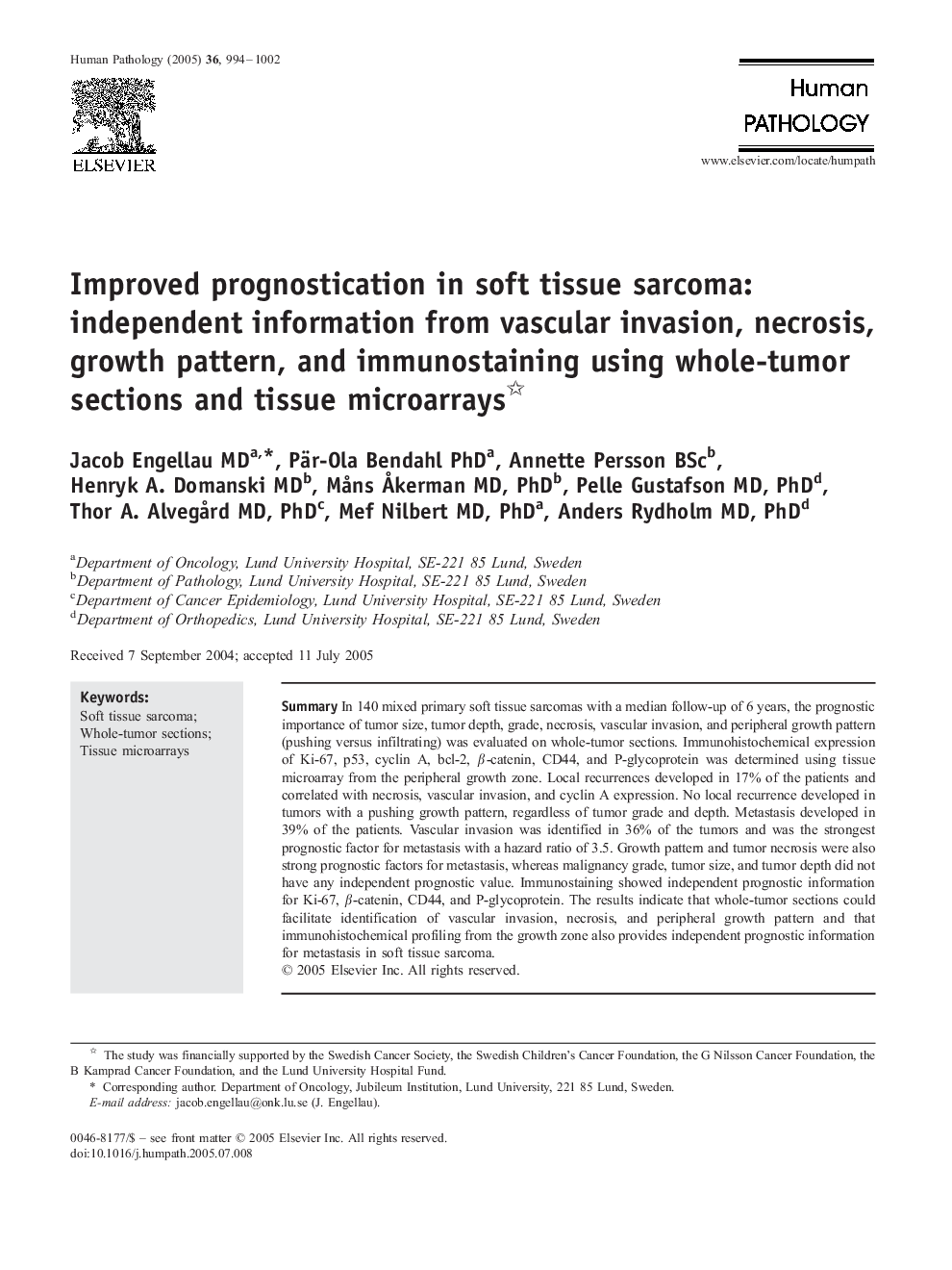| Article ID | Journal | Published Year | Pages | File Type |
|---|---|---|---|---|
| 9365281 | Human Pathology | 2005 | 9 Pages |
Abstract
In 140 mixed primary soft tissue sarcomas with a median follow-up of 6 years, the prognostic importance of tumor size, tumor depth, grade, necrosis, vascular invasion, and peripheral growth pattern (pushing versus infiltrating) was evaluated on whole-tumor sections. Immunohistochemical expression of Ki-67, p53, cyclin A, bcl-2, β-catenin, CD44, and P-glycoprotein was determined using tissue microarray from the peripheral growth zone. Local recurrences developed in 17% of the patients and correlated with necrosis, vascular invasion, and cyclin A expression. No local recurrence developed in tumors with a pushing growth pattern, regardless of tumor grade and depth. Metastasis developed in 39% of the patients. Vascular invasion was identified in 36% of the tumors and was the strongest prognostic factor for metastasis with a hazard ratio of 3.5. Growth pattern and tumor necrosis were also strong prognostic factors for metastasis, whereas malignancy grade, tumor size, and tumor depth did not have any independent prognostic value. Immunostaining showed independent prognostic information for Ki-67, β-catenin, CD44, and P-glycoprotein. The results indicate that whole-tumor sections could facilitate identification of vascular invasion, necrosis, and peripheral growth pattern and that immunohistochemical profiling from the growth zone also provides independent prognostic information for metastasis in soft tissue sarcoma.
Related Topics
Health Sciences
Medicine and Dentistry
Pathology and Medical Technology
Authors
Jacob MD, Pär-Ola PhD, Annette BSc, Henryk A. MD, MÃ¥ns MD, PhD, Pelle MD, PhD, Thor A. MD, PhD, Mef MD, PhD, Anders MD, PhD,
